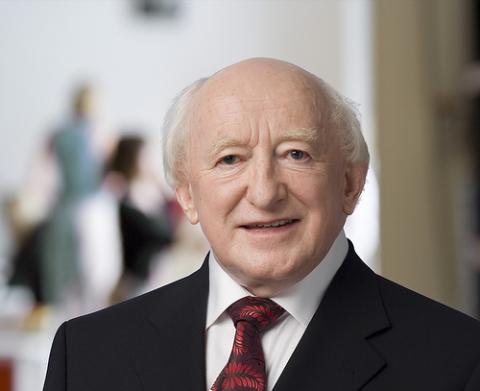A new political agenda for Ireland

At a conference in University College Dublin (UCD), leading academics and community workers called for a "new agenda" to be created to give the Irish electorate a real political alternative, while Labour's Michael D. Higgins signalled his support for a true left alternative. By Joe Galvin.
The conference, entitled Equality in a Time of Crisis, was organised by UCD's Egalitarian World Initiative and looked at how Ireland could create a "socially just society". It took place in UCD's Quinn School of Business building.
One of the organisers of the event, Prof. Kathleen Lynch, told Politico that the conference hoped to "set an agenda...to interrupt the consensus that the big problem in Ireland is about funding the banks". She said that Ireland has "no left of any substance" and called on left wing organisations to work together to form a real alternative.
Indeed, Michael D. Higgins said that the Labour Party would be willing "give leadership for a new kind of politics". He told Politico that "if... a government of the left could be formed and we needed the support of Sinn Féin...I would have no problem with that". He said that that such a coalition, if formed, would have to be a Labour led coalition. However, he did not rule out the possibility of entering into coalition with Fine Gael.
Currently, other left wing parties such as People before Profit and the Socialists are in negotiations regarding the formation of a left slate in the next general election. However, the Labour Party is not a part of these discussions.
Higgins was speaking at a panel discussion entitled Economic Crisis and State Reaction: Implications for Equality, with panellists including Sara Burke, Susan McKay of the National Women's Council, former Equality Authority CEO Niall Crowley and current junior minister for equality, Mary White.
White, a Green Party TD, came in for an especially hard time from the 100 strong crowd, which comprised several community workers and activists including Rita Fagan, of the St. Michael's Estate Community Development Project (CDP), and Cathleen O'Neill, of Kilbarrack CDP. O'Neill welcomed the appointment of White to the post, but was hugely critical of government policy and asked White to reverse the cuts to CDPs which were pushed through last year.
White said she was a "huge fan" of CDPs, but that it may not be possible to reverse the cuts. Fagan, unlike O'Neill, did not hold back and savaged White and the government, saying that she did not believe the government's commitments. "We're not giving up," said Fagan in a fiery speech that was met with huge applause by the assembled audience.
White, for her part, committed to "count the costs" of the CDP cuts with a view to presenting the case to Minister Pat Carey, who has overall responsibility for the community sector.
Susan McKay also welcomed the appointment of White, but was equally critical of government policy towards equality. She also criticised media discourse of women's rights, stating her incredulity at the media's fascination with the recent Hunky Dory crisp advertisements over the resignation of Kathleen McMahon as the head of the state's only female prison, and the continuing negotiations over wage cuts at Rape Crisis Centres.
"That level of trivialisation of women is a part of why women are so invisible," said McKay. "When we try to talk about serious things we are not listened to." She said that while women are "mobilising", the equality legislation in place had "not served women well" thus far.
Sara Burke, journalist and health policy analyst, heaped further criticism on the government, leaving White looking increasingly isolated on the stage. "What this government has done since 1997...is [deepen inequality]," said Burke. She cited the removal of the Christmas social welfare bonus and the 4% reduction in welfare rates as examples of government failure to tackle inequality.
To conclude her speech she turned to White and said: "If you have any influence at all...undo the introduction of prescription charges." She said that research has shown even small increases in prescription charges will prevent those in need from accessing necessary medication.
White departed on government business before the conclusion of the debate, but she could not have missed the level of anger in the room at the government and their economic policies. The desire for a "new agenda" may exist, but questions remain whether that desire can be fulfilled. Left wing activists are due to take to the streets in a march against the bank bailouts next Tuesday, and Kathleen Lynch said she hoped that "thousands" would turn out. If that anger is harnessed by the left, a "new agenda" may yet be formed.
